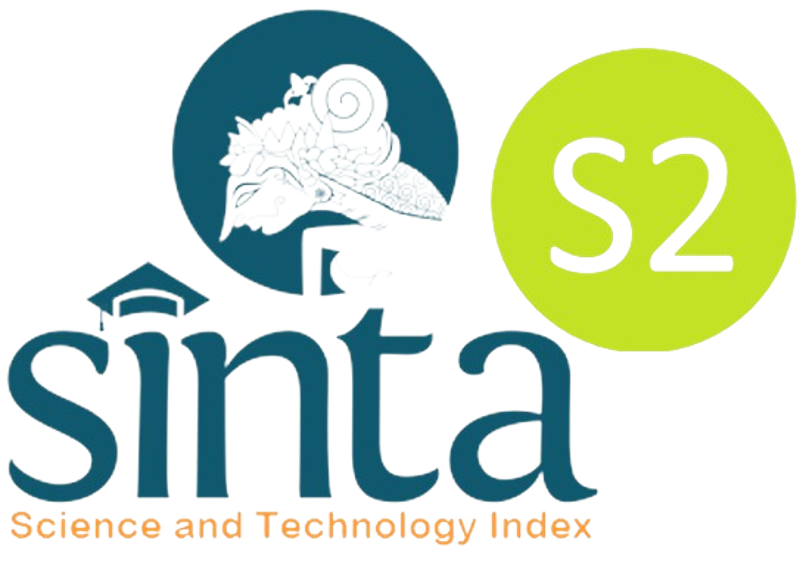How do Digital Native Students Responses to Balinese Ethnomathematics Problems
Abstract
Abstract: How do Digital Native Students Responses to Balinese Ethnomathematics Problems Objectives: This study determines digital native students responses to ethnomathematical problems in Balinese culture. Methods: This study uses descriptive analysis techniques. The subjects were 42 students of class VIII.1 and VIII.5 SMP Widiatmika. Data was collected through questionnaires, tests, and interviews. The student response questionnaire consists of 3 aspects, namely familiar or not familiar, appropriate or not appropriate, and interested or not interested. The responses data the percentage of positive and negative responses is then calculated. Findings: The results showed that only 16.67 percent of students are familiar with Balinese ethnomathematics problems, 95.24 percent of students considered that the ethnomathematics was appropriate in learning mathematics, and 90.48 percent of students are interested in ethnomathematics. Conclusion: It was found that digital native students tend to give a positive response but are unable to understand Balinese ethnomathematics. From these findings, Future learning is expected to become a culture and technology-based learning.
Keywords: Digital Native Students, Ethnomathematics, Student Response, Problem Solving, Balinese Culture.
Abstrak: Bagaimana Respon Siswa Generasi Digital Native terhadap Masalah Etnomatematika Bali? Tujuan: Penelitian ini untuk mengetahui respon siswa digital native terhadap permasalahan etnomatematika dalam budaya Bali. Metode: Penelitian ini menggunakan teknik analisis deskriptif. Subjek penelitian adalah 42 siswa kelas VIII.1 dan VIII.5 SMP Widiatmika. Pengumpulan data dilakukan melalui angket, tes, dan wawancara. Angket respon siswa terdiri dari 3 aspek yaitu familiar atau tidak familiar, sesuai atau tidak sesuai, dan tertarik atau tidak tertarik. Data tanggapan kemudian dihitung persentase tanggapan positif dan negatifnya. Temuan: Hasil penelitian menunjukkan bahwa hanya 16,67 persen siswa yang paham dengan masalah etnomatematika Bali, 95,24 persen siswa menganggap etnomatematika sesuai dalam pembelajaran matematika, dan 90,48 persen siswa tertarik dengan etnomatematika. Kesimpulan: Ditemukan bahwa siswa digital native cenderung memberikan respon positif tetapi tidak mampu memahami etnomatematika Bali. Dari temuan tersebut, pembelajaran masa depan diharapkan menjadi pembelajaran berbasis budaya dan teknologi.
Kata Kunci: Siswa Digital Native, Etnomatematika, Respon Siswa, Pemecahan Masalah, Budaya Bali.
Full Text:
PDFReferences
Awaliyah, E. M. (2019). Peran Etnomatematika di Sekolah dalam Upaya Peningkatan Stigma Positif Pelajar Terhadap Pembelajaran Matematika. Didactical Mathematics, 2(1), 23. https://doi.org/10.31949/dmj.v2i1.1668
Afif, N. (1970). Pengajaran dan Pembelajaran di Era Digital. IQ (Ilmu Al-Qur’an): Jurnal Pendidikan Islam, 2(01), 117–129. https://doi.org/10.37542/iq.v2i01.28
Khairida. (2019). Penerapan Pendekatan Pembelajaran Berbasis Etnomatematika dalam Meningkatkan Minat Belajar dan Aspek Kognitif Siswa. Jurnal Pendidikan Dan Pembelajaran Terpadu, 1(2), 114–124.
Kivunja, C. (2014). Innovative Pedagogies in Higher Education to Become Effective Teachers of 21st Century Skills: Unpacking the Learning and Innovations Skills Domain of the New Learning Paradigm. International Journal of Higher Education, 3(4), 37–48. https://doi.org/10.5430/ijhe.v3n4p37
Nur, S. A., Sukestiyarno, Y. L., & Junaedi, I. (2019). Etnomatematika Dalam Perspektif Problematika Pembelajaran Matematika: Tantangan Pada Siswa Indigenous. Universitas Negeri Semarang, 910–916.
Pathuddin, H., Kamariah, & Ichsan Nawawi, M. (2021). Buginese Ethnomathematics: Barongko Cake Explorations as Mathematics Learning Resources. Journal on Mathematics Education, 12(2), 295–312. https://doi.org/10.22342/jme.12.2.12695.295-312
Prahmana, R. C. I., & D’Ambrosio, U. (2020). Learning geometry and values from patterns: Ethnomathematics on the batik patterns of yogyakarta, indonesia. Journal on Mathematics Education, 11(3), 439–456. https://doi.org/10.22342/jme.11.3.12949.439-456
Prensky, M. (2012). “From digital natives to digital wisdom: hopeful essays for 21st century learning”. India: Corwin Press.
Rachmawati, I. (2012). Eksplorasi Etnomatematika Masyarakat Sidoarjo. MATHEdunesa, 1(1).
Rahayu, P. (2019). Pengaruh Era Digital Terhadap Perkembangan Bahasa Anak. Al-Fathin: Jurnal Bahasa Dan Sastra Arab, 2(1), 47. https://doi.org/10.32332/al-fathin.v2i2.1423
Sarkar, N., Ford, W., & Manzo, C. (2017). Engaging digital natives through social learning. ICSIT 2017 - 8th International Conference on Society and Information Technologies, Proceedings, 2017-March (2), 178–182.
Setiyani, Putri, D. P., Ferdianto, F., & Fauji, S. H. (2020). Designing a digital teaching module based on mathematical communication in relation and function. Journal on Mathematics Education, 11(2), 223–236. https://doi.org/10.22342/jme.11.2.7320.223-236
Setyosari, P. (2015). Peran Teknologi Pembelajaran Dalam Transformasi Pendidikan di Era Digital. Seminar Nasional Teknologi Pendidikan, Universitas Negeri Malang, 219-227, 2015. Malang, Indonesia: Program Studi Teknologi Pendidikan Universitas Negeri Malang.
Spires, M., & Bartlett, H. (2012). Digital Literacies and Learning: Designing a Path Forward. Friday Institute White Paper Series, No. 5(June), 1–24. www.fi.ncsu.edu/whitepapers
Tapscott, D. (2009). Grown up digital: How the net generation is changing your world. New York, US: McGraw-Hill.
Thompson, P. (2013). The digital natives as learners: Technology use patterns and approaches to learning. Computers and Education, 65, 12–33. https://doi.org/10.1016/j.compedu.2012.12.022
Wulantina, E., Hertanti & Maskar, S. (2019). Respon Siswa terhadap Bahan Ajar Matematika Berbasis Lampungnese Etnomatematics. Journals of Mathematics Education, 2(2), 45–54.
Zusmelia. (2016). Matematika dalam Perspektif Indegenous People dan Indegeneous Knowledge (Kasus pada Masyarakat Matrilineal Minangkabau Sebuah Tinjauan Sosiologis). Seminar Nasional Matematika dan Pendidikan Matematika (pp. 1-12). Padang: STKIP PGRI Sumatera Barat.
Refbacks
- There are currently no refbacks.
Copyright (c) 2022 Jurnal Pendidikan Progresif

This work is licensed under a Creative Commons Attribution-ShareAlike 4.0 International License.
View My Stats

The copyright is reserved to The Jurnal Pendidikan Progresif that is licensed under a Creative Commons Attribution-ShareAlike 4.0 International License.





